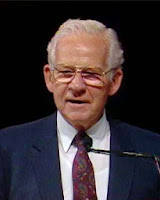"Discerning and accepting the will of God in our lives are fundamental elements of asking in faith in meaningful prayer. However, simply saying the words 'Thy will be done' is not enough. Each of us needs God's help in surrendering our will to Him.
"'Prayer is the act by which the will of the Father and the will of the child are brought into correspondence with each other' (Bible Dictionary, 'Prayer,' 752-53). Humble, earnest, and persistent prayer enables us to recognize and align ourselves with the will of our Heavenly Father. And in this the Savior provided the perfect example as He prayed in the Garden of Gethsemane, 'saying, Father, if thou be willing, remove this cup from me: nevertheless not my will, but thine, be done. ... And being in an agony he prayed more earnestly' (Luke 22:42, 44).
"The object of our prayers should not be to present a wish list or a series of requests but to secure for ourselves and for others blessings that God is eager to bestow, according to His will and timing. Every sincere prayer is heard and answered by our Heavenly Father, but the answers we receive may not be what we expect or come to us when we want or in the way we anticipate....
"Prayer is a privilege and the soul's sincere desire. We can move beyond routine and 'checklist' prayers and engage in meaningful prayer as we appropriately ask in faith and act, as we patiently persevere through the trial of our faith, and as we humbly acknowledge and accept 'not my will, but Thine, be done.'"
- David A. Bednar, "Ask in Faith," Ensign, May 2008, pp. 94-97
Click here to read the full talk
This is a very thought-provoking excerpt for me. I was blessed by Elder Bednar's exploration of motivation and purpose for our prayers. I've always appreciated the descriptions in the Bible Dictionary about prayer being "a form of work"; Elder Bednar quotes a portion of this paragraph:
"Prayer is the act by which the will of the Father and the will of the child are brought into correspondence with each other. The object of prayer is not to change the will of God but to secure for ourselves and for others blessings that God is already willing to grant but that are made conditional on our asking for them. Blessings require some work or effort on our part before we can obtain them. Prayer is a form of work and is an appointed means for obtaining the highest of all blessings." (Bible Dictionary, s.v. 'Prayer')This is a great key: our real goal in prayer is not to change God's will, or "talk Him into" our way of thinking how things should turn out; but instead to help us discover God's will for us, so that we can mold our thoughts and actions to that purpose.
There may be no better lesson of the true value and blessing of prayer in time of need, than that simple phrase Luke includes in his description of the Garden Prayer: "And being in an agony he prayed more earnestly." And again, the increase of intensity of prayer was not to change the direction of events, but to secure the Father's blessings and strength to enable the One praying to comply with the Father's will and purpose. What a perfect example to strive to follow!


































